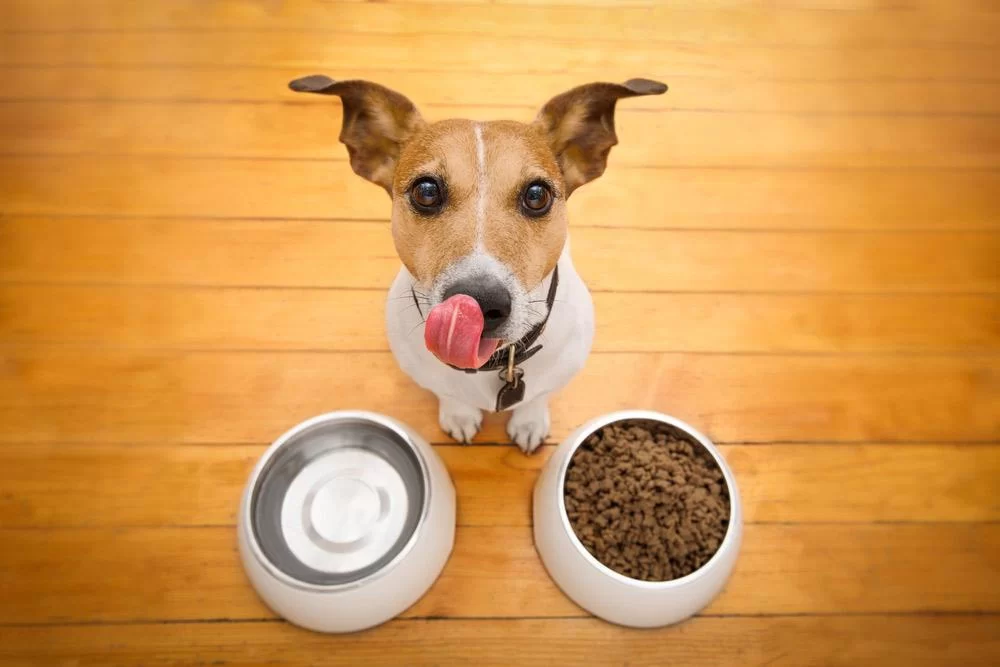Why Balanced Nutrition is Essential for Your Pet’s Health
As a pet owner, one of the most important responsibilities you have is ensuring your pet is well-fed with nutritious food. Just like us, pets need a balanced diet to maintain their energy levels, support their growth, and stay healthy. But, navigating the world of pet food can be overwhelming with all the options available today. You might wonder, what exactly constitutes a "balanced" diet for pets, and how can you make sure your furry friend gets the nutrients they need? Let's dive into the details and explore why balanced nutrition is so crucial for your pet's overall health.
What Does Balanced Nutrition Mean for Pets?
When we talk about balanced nutrition for pets, we refer to a diet that includes the right proportions of proteins, fats, carbohydrates, vitamins, and minerals. These nutrients are vital for your pet’s bodily functions, from energy production to immune system support. For example, proteins help in muscle development, fats provide a rich source of energy, and carbohydrates offer quick fuel for active pets. Vitamins and minerals, on the other hand, ensure that organs and systems operate efficiently.
But not all pets require the same diet. A puppy’s nutritional needs are different from those of an adult dog, and senior pets may need specialized food to address their changing health requirements. This means that what works for one pet may not be ideal for another, and it’s essential to choose pet food that is appropriate for your pet’s age, breed, size, and any specific health concerns they might have.
Understanding the Role of Protein, Fats, and Carbohydrates
Let’s break down the core components of a balanced pet diet:
Protein: The Building Block of Life
Protein is crucial for your pet’s muscle development and repair, and it also plays an important role in hormone and enzyme production. Depending on your pet’s needs, protein should make up a significant portion of their diet. Animal-based proteins (like chicken, beef, or fish) are particularly high in essential amino acids that pets require for overall well-being.
Fats: The Energy Source
Fats are a vital source of long-lasting energy for your pet. While fats often get a bad reputation, they are actually necessary for proper cell function, absorption of fat-soluble vitamins, and maintaining healthy skin and a shiny coat. Omega-3 and omega-6 fatty acids are particularly important for supporting heart health and reducing inflammation.
Carbohydrates: Quick Fuel for Active Pets
Carbohydrates, often derived from grains and vegetables, provide quick energy for your pet, especially for active dogs. While cats, being obligate carnivores, require fewer carbs, they can still benefit from small amounts to maintain a healthy digestive system. However, it’s important to ensure that the carbohydrates in your pet’s food come from wholesome, easily digestible sources.
The Impact of Balanced Nutrition on Pet Health
Proper nutrition has a profound impact on your pet's health, affecting everything from their coat condition to their energy levels, behavior, and even lifespan. Pets fed a balanced diet are generally more energetic, have healthier skin and coats, and are less prone to illnesses and chronic conditions. On the other hand, a poor diet can lead to a variety of health problems, including obesity, digestive issues, and weakened immune systems.
Preventing Obesity
Obesity is a common issue among pets in the United States, and it often results from overeating, lack of exercise, or feeding the wrong types of food. Pets with excess body weight are at higher risk for conditions like diabetes, joint problems, and heart disease. A balanced diet, along with regular exercise, can help your pet maintain a healthy weight and live a longer, more active life.
Supporting Healthy Skin and Coat
The condition of your pet’s coat can be a direct reflection of their diet. Nutrient-rich food with adequate fats and proteins helps keep your pet's coat shiny and smooth. If you notice your pet’s coat looking dull or their skin becoming flaky, it may be time to review their diet and make sure they’re getting the right balance of nutrients.
How to Choose the Right Food for Your Pet
Choosing the right food for your pet involves understanding their unique dietary needs. Here are some tips to help guide your decision:
1. Check the Ingredients List
Start by looking at the ingredients list on pet food packaging. The first few ingredients should be high-quality protein sources (like meat or fish). Avoid food with excessive fillers such as corn, soy, and wheat, as they offer little nutritional value.
2. Age-appropriate Food
Ensure that the food you’re buying is appropriate for your pet’s life stage. Puppies, adult dogs, and senior pets all have different nutritional requirements. For example, puppies need more calories and protein for growth, while older pets might need food that’s easier to digest and helps support joint health.
3. Consult Your Veterinarian
If you’re unsure about the best diet for your pet, consult your veterinarian. They can recommend specific foods based on your pet’s breed, size, and health history. If your pet has any special dietary needs or allergies, your vet can help you find the right food to address those issues.
Real-life Example: How Balanced Nutrition Transformed My Pet
Let me share a personal story. A few years ago, I adopted a rescue dog named Max, who was a bit underweight and had a dull coat. I didn’t know much about pet nutrition at the time, but I soon learned that Max needed a diet rich in high-quality proteins and healthy fats. After switching to a balanced diet and monitoring his food intake, I noticed dramatic changes. Max became more energetic, his coat became shinier, and he even started losing a bit of his excess weight. It was amazing to see how such a simple change in diet could have such a positive impact on his overall health.
Remember, nutrition is not just about feeding your pet to fill their stomach; it’s about feeding them the right nutrients for a healthy, happy life. Keep your pet’s needs in mind, and make sure they’re getting the proper nutrition for their age, breed, and lifestyle. A balanced diet can make all the difference in your pet’s health and longevity.












